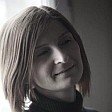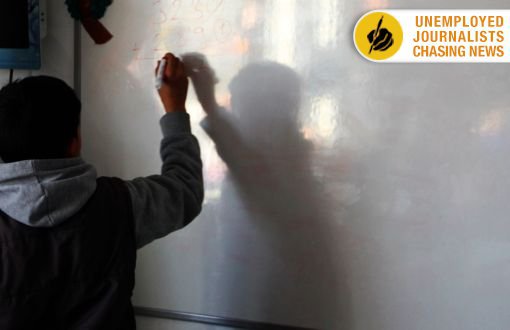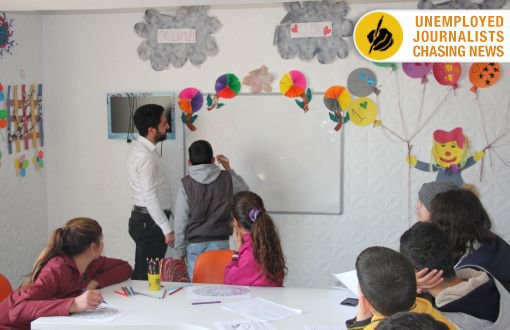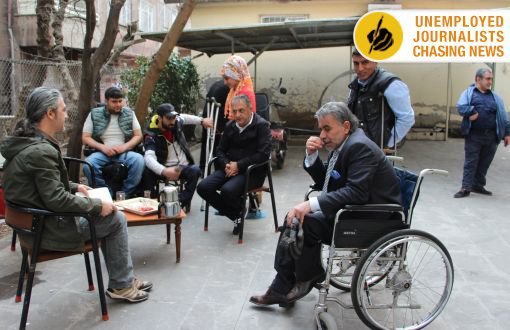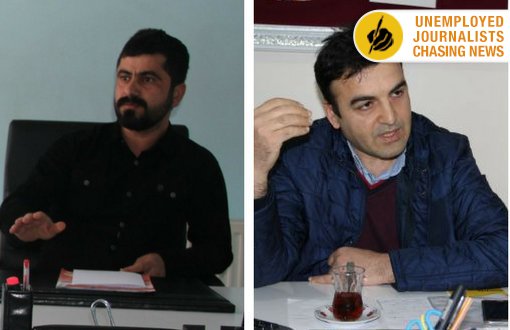Click to read the article in Turkish and Kurdish
Turkey implemented the “Educational Support for Disabled Individuals” in 2005. Up until that point, only the children of people with social security were eligible for this education.
The new application was put into effect with the “Code Concerning the Amendment to the Law on Disabled No. 5378 and Some Laws and Statutory Decrees,” which was published in the Official Gazette on July 2, 2005. The legislation applies to the individuals who are 20% disabled or more.
The number of centers has increased threefold
The number of private education and rehabilitation centers has increased through this implementation. Those who set up private rehabilitation centers determined the number of disabled individuals by checking each and every house, which helped in the intake of the reports on the disabled individuals. By doing this, to a large extent the number of students has been guaranteed.
According to 2016 data from the Disabled and Elderly General Directorate of the Ministry of Family and Social Policies, the number of students increased threefold over eight years, increasing from 131,206 in the 2006-2007 academic year to 349,681 in the 2014-2015 academic year.
According to data by the Ministry of National Education, there are 2,030 private rehabilitation and education centers operating nationwide as of 2017. At present, 333,280 disabled individuals receive education at these educational institutions.
12 billion TL to the centers
According to the speech “Budget Presentation 2017” by the Minister of National Education İsmet Yılmaz, the amount of the budget allocated to the private education and rehabilitation centers is 12,188,990,000 TL.
Curriculum and absence
The educational support is paid to the centers based on the number of students attending the classes. The attendance of a student is documented by the signature of the student’s parents.
Ministry of National Education inspectors check the institution concerning the curriculum and physical environment but cannot monitor whether a student attends classes. The inspectors conducting routine monthly inspections cannot tell whether a student attended the course unless there is a complaint by the parents.
Irregularities
Irregularities mostly occur in areas such as in the forgery of documents, through receiving funds by making it look as student attended the course, and through damaging the state’s economy.
The amount of reports appearing in the media that cover these irregularities and misconduct at the private rehabilitation and education centers is not low. Simultaneous investigations were launched into private rehabilitation and education centers charged with fraud in five cities in 2017. The police detained many people during the operations.
Police raided four private rehabilitation and education centers in Edirne in 2012 and seized computers and documents. Legal action was taken against the central directors.
Pledges
The irregularities are mostly caused by the centers’ business-oriented approach and the involvement of the students’ parents in the process through economic pledges.
It is also widely rumored that the private rehabilitation centers take signatures from financially challenged parents that prove on paper that their children received education in exchange for money, coal and food support.
An example of this took place in Diyarbakır province in 2012. A student who was registered at private rehabilitation center in Kayapınar district of Diyarbakır lost his life. The center received funding from the Ministry of National Education for three months as though he was attending the classes despite the fact that he was no longer alive. The fraud was disclosed through a complaint of a family.
Education is the state’s job
.jpg)
The Six Points Association of the Blind board member and Diyarbakır Branch Chair Mehmet Akif Karakaş says irregularities and abuses take place nationwide:
“There are centers that do their jobs professionally but there are also others that commercialize it and say ‘I shall find 100-200 disabled people so I can be granted funding by the state.’ An urgent regulation is needed. Education has to be under the responsibility of the state, not the private sector.”
It is everyone’s responsibility
According to Association for the Physically Disabled Diyarbakır Branch Chair Ömer Aksan, there are 125,000 disabled individuals living in Diyarbakır:
“According to the complaints we’ve received, the officials working at the centers offer the people 100 TL, have them registered and tell them they don’t need to come back. We have no authority to intervene. We haven’t notified the relevant authorities. The institution can be closed down. The companies will target us if we do such thing.
“If the families of the disabled individuals don’t sell this right, then that institution cannot do the same to someone else. The families must report the irregularities to the authorities. It is everybody’s responsibility.”
Centers and families
.jpg)
The Bingöl Association for All Disabled People Chair İdris Canlı points to the centers and families for problems and solutions:
“Everyone knows each other in small cities like Bingöl. The centers say ‘Bring us the child’s certificate and we will deliver you coal, food and cash support every month. They collect the disability certificates from those who have them. They have the certificates issued for those who don’t have them already. They’ve totally commercialized this matter”.
Canlı states the centers have mostly focused on the villages and economically disadvantaged people to find students:
“Parents who don’t know their social rights or how to read and write are easily convinced. The parents sign the document as though their children attended the class in exchange for a couple of bags of coal, some packages of food or 100-150 TL. They of course don’t file a complaint”.
Monitoring system by the Ministry
The Ministry of National Education is implementing a biometric identity system in order to monitor students and teachers at the centers
With certain amendments made in the Statutory Decree Concerning Organization and Duties of the Ministry of National Education, which was published in the Official Gazette on December 9, 2016, a way has been paved for the use of systems of biometric identity confirmation and imaging systems with cameras at the private education and rehabilitation centers.
Issuing a statement in January, the Director of Private Education Institutions of the Ministry of National Education Kemal Şamlıoğlu announced that the biometric identity confirmation system will be implemented at all private rehabilitation and education centers.
The system is planned to be put into effect as of September 1, 2017.
The solution is in biometric identity
.jpg)
Bingöl National Education Director Kadri Engin explains that monitoring students and teachers will be possible by means of biometric identity:
“Documents regarding attendance of the students are filled by the centers and signed by families. As long as the families don’t complain, attendance of the students cannot be determined.
“Abuses will be prevented with the biometric identity confirmation system. At least suspicions on this matter will have been removed. Which class the students attended and what course was given by which lecturer will be seen in the system”.
Palm scanning
Bingöl Counseling Research Center (RAM) Deputy Director İzzet Argun says that the infrastructure of the palm and vein scanning system has been completed and the information about the students and parents has been entered into the system:
“There are around 1,700-1,800 students in Bingöl. So far, the information for 1,200 students and 30 teachers has been entered into the system. As many as 1,500 students remain. The palm scanning system will be completed when that is finished too.”
Suspension
The palm/vein scanning system first arrived on the agenda in 2012. 17 pilot cities were chosen for the program that was planned to be put into effect in 2014.
This system, designed to monitor student and teacher development, was suspended to 2015 due to reactions from some disability associations as well as private rehabilitation and education centers.
Becoming compulsory via legislation enacted in May 2012, the palm scanning system is only used at public Counseling Research Centers. The private rehabilitation and education centers still distances themselves from this system
Children first
The associations for disabled people advocate the position that the palm scanning systems will psychologically harm students. The private rehabilitation and education centers support this argument as well.
Bingöl Bir Umut Private Education and Rehabilitation Center Director Mehmet Çapak says the palm scanning system will cause more problems rather than solve them:
“The students who need private education receive education here. These children have learning difficulties. They are afraid. You cannot force children to have their hands scanned at the beginning of each course. This negatively affects children’s psychology.
“Precautions should be taken with regard to the supervision of the children. Nevertheless, such a system shouldn’t cause fear in the students. Camera systems should be installed at the schools. Remote eye scanning or fingerprint systems are also fine. The children’s special conditions must be taken into account in the steps to be taken.” (RB-LA/NU/HK)
Photos: Leyla Ayaz
Tomorrow: Bingöl 3-4
***
UNEMPLOYED JOURNALISTS CHASING NEWS
1- Even Though They Speak Through Their New “Occupations,” They Are Journalists
2- Journalism is Banned under theState of Emergency
3- Germany: New Generation Diaspora/Kopuntu
4- Germany: Immigration of the Suffocated
5- The Organization that Made "The Arab Girl Looks from the Window"
6- How They Work/Cannot Work, Breaking Down the Stereotypes
7- They Marry White People to Avoid Discrimination
* The "Unemployed Journalists Chasing News" project is being realized with the financial support of Matra-Human Rights Program of Consulate General of the Kingdom of the Netherlands.




